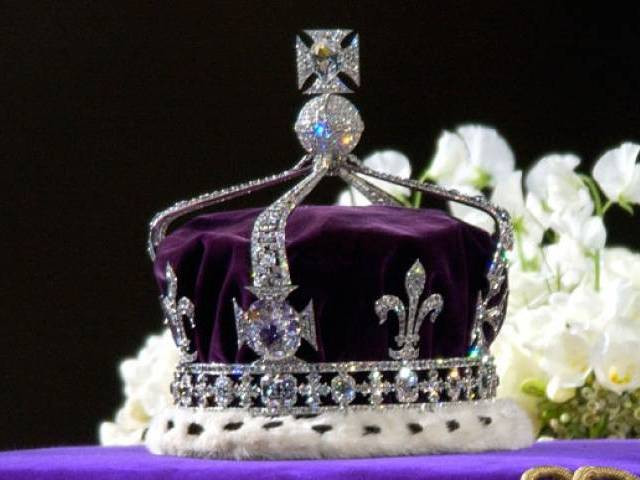India says Koh-e-Noor diamond belongs to Britain
108-carat Koh-i-Noor gem is the subject of a historic ownership dispute, claimed by at least four countries

PHOTO: REUTERS
The 108-carat Koh-i-Noor gem, which came into British hands during the colonial era, is the subject of a historic ownership dispute and has been claimed by at least four countries including India.
But India's Solicitor General Ranjit Kumar said the 19th-century Sikh king Ranjit Singh had given the stone to the British.
LHC accepts petition seeking return of Koh-e-Noor diamond from British Queen
"It was given voluntarily by Ranjit Singh to the British as compensation for help in the Sikh Wars. The Koh-i-Noor is not a stolen object," he told the Supreme Court.
The court was hearing a suit filed by the All India Human Rights & Social Justice Front, a non-governmental organisation, seeking the diamond's return.
It asked the solicitor general to file an affidavit giving the government's stance on the issue.
The stone was presented to Queen Victoria in 1850 after the Anglo-Sikh wars in which Britain gained control of the Sikh empire of the Punjab, which is now split between Pakistan and India.
Singh in turn had taken it from an Afghan king who had sought sanctuary in India.
Britain to India: Koh-i-Noor diamond is ours
The diamond had been an heirloom of the Afghan monarchy and before then was in Persian royal hands, but its true origins remain a mystery.
Its name translates as "Mountain of Light" and it is traditionally worn by a queen -- it is said to bring bad luck to any man who wears it.
In 1976 Britain refused a request to cede the diamond, citing the terms of the Anglo-Sikh peace treaty.
"I could not advise Her Majesty the Queen that it should be surrendered," said Jim Callaghan, prime minister at the time.
Britain's Prime Minister David Cameron has also said he would oppose returning the diamond.
"If you say yes to one you suddenly find the British Museum would be empty," he told NDTV television in 2010.
"It is going to have to stay put."



















COMMENTS
Comments are moderated and generally will be posted if they are on-topic and not abusive.
For more information, please see our Comments FAQ